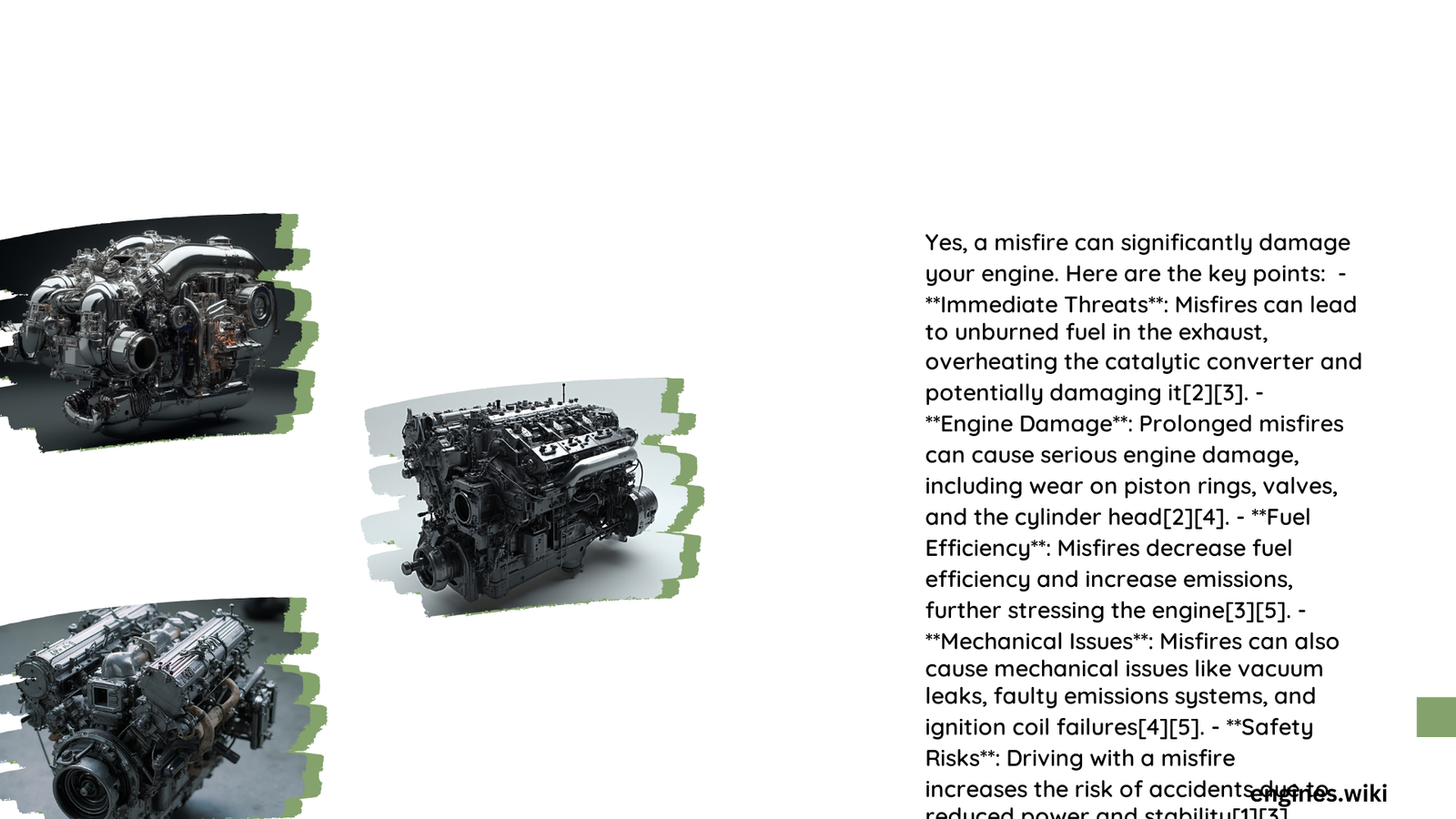Engine misfires are more than just a minor inconvenience—they represent a critical threat to your vehicle’s heart. When cylinders fail to fire correctly, they can trigger a cascading series of mechanical failures that potentially destroy expensive engine components, compromise vehicle performance, and lead to thousands of dollars in repair costs. Understanding the intricate ways misfires impact your engine is crucial for preventing long-term damage and maintaining your vehicle’s health.
What Happens When Engine Misfires Occur?
Engine misfires represent a complex mechanical failure where one or more cylinders in an internal combustion engine do not generate power during the combustion cycle. This disruption can manifest through various symptoms and cause significant mechanical stress.
How Do Misfires Damage Engine Components?
Misfires can systematically destroy multiple engine systems through several mechanisms:
Spark Plug and Ignition System Degradation
- Continuous misfires accelerate wear on spark plugs
- Ignition coils experience increased electrical stress
- Potential complete ignition system failure
Fuel System Complications
- Uneven fuel distribution
- Increased strain on fuel injectors
- Potential fuel pump damage
| Component | Potential Damage | Estimated Repair Cost |
|---|---|---|
| Spark Plugs | Electrode erosion | $50 – $250 |
| Fuel Injectors | Clogging/mechanical failure | $200 – $600 |
| Catalytic Converter | Excessive heat damage | $500 – $2,000 |
What Are Immediate Consequences of Misfires?
Immediate consequences include:
– Reduced engine performance
– Increased fuel consumption
– Potential check engine light activation
– Rough idling and acceleration issues
How Severe Can Engine Damage Become?
In extreme scenarios, persistent misfires can lead to:
1. Piston ring damage
2. Cylinder wall scoring
3. Potential engine seizure
4. Complete engine replacement requirement
What Diagnostic Steps Should You Take?
Recommended diagnostic approach:
– Use professional diagnostic scanner
– Perform comprehensive engine compression test
– Inspect spark plugs and ignition components
– Check fuel system integrity
– Evaluate overall engine performance metrics
Can Preventive Maintenance Help?
Preventive strategies include:
– Regular spark plug replacement
– Using high-quality fuel
– Maintaining proper engine tune-ups
– Addressing warning signs immediately
– Following manufacturer’s recommended maintenance schedule
Technical Insights on Misfire Mechanisms

Misfires occur through multiple failure points:
– Electrical system malfunction
– Fuel delivery interruptions
– Mechanical component wear
– Compression loss
– Electronic control unit (ECU) errors
What Are Financial Implications?
Cost spectrum for misfire-related repairs:
– Minor repairs: $100 – $500
– Moderate repairs: $500 – $1,500
– Extensive engine damage: $2,000 – $6,000
– Complete engine replacement: $4,000 – $10,000
Conclusion
Engine misfires represent a serious mechanical threat requiring immediate professional attention. Proactive maintenance and swift diagnostic intervention can prevent catastrophic engine failure and minimize repair expenses.
